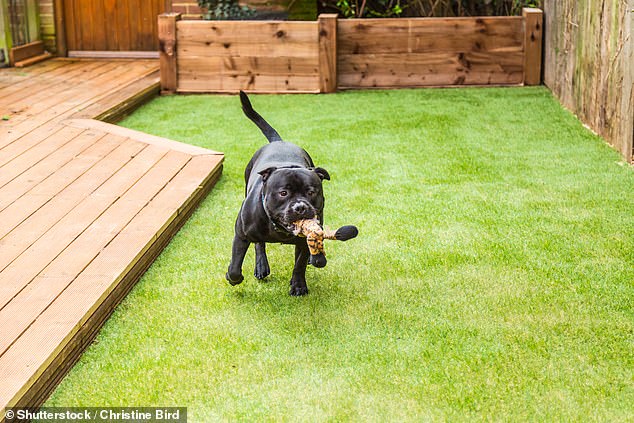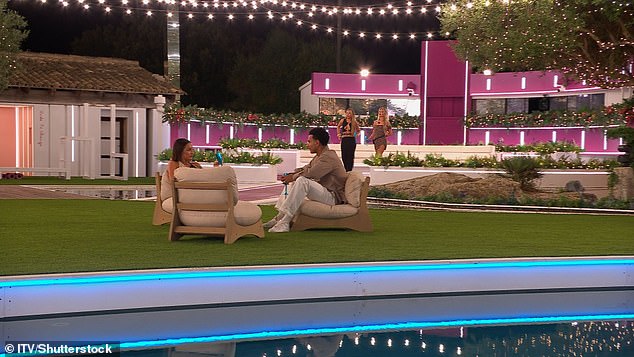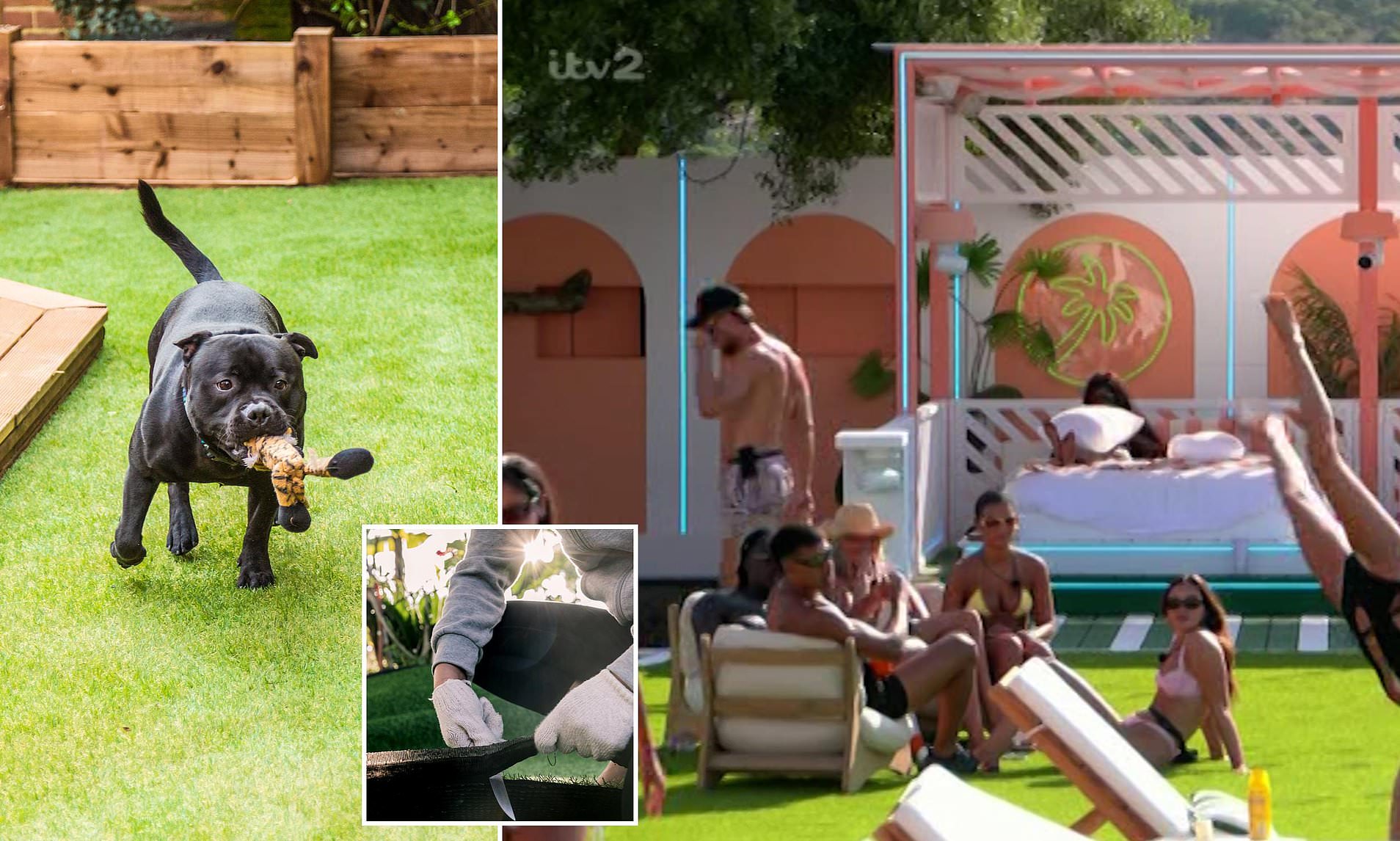-
READ MORE: Pharmacist’s alarming warning about popular gym habit
While it may seem like a time-saving maintenance option for your garden, artificial grass could come with a major health risk, experts warn.
Replacing a turfed lawn with a neat carpet of manmade fake grass has been one of the biggest home trends of the past decade, partly inspired by the lavish exterior styling of
ITV2
reality show Love Island.
However, many people who have swapped their patchy, muddy natural grass for a synthetic alternative aren’t aware there is still some vital upkeep.
Although it doesn’t need to be mowed, watered or reseeded—after all, the main selling point of fake grass is that it’s a hassle-free option—it does need to be regularly cleaned, and thoroughly.
Experts have warned that as temperatures soar, the garden favourite can rapidly become a breeding ground for potentially harmful bacteria.
This is particularly the case for pet owners who allow their cat and dog to urinate and defecate on the plastic surface.
Without thorough cleaning with the correct antibacterial products, these germs can quickly spread—creating an increased risk of food poisoning if as people start BBQing and eating outdoors in the good weather.
In a report commissioned by Decking Superstore, experts reminded Britons that their artificial grass ‘doesn’t clean itself’.


According to previously published research, people with artificial grass have been exposed to E. coli and salmonella, two nasty strains of bacteria which can cause serious food poisoning.
E.coli can trigger bloody diarrhoea as well as a potentially deadly kidney condition called severe haemolytic uraemic syndrome, and according to some researchers an
increased risk of certain cancers
.
Salmonella can cause severe sickness which can last for up to a week.
The report continued: ‘Artificial grass can trap pet urine and faecal bacteria, if not rinsed and sanitised.
‘Pet urine doesn’t soak into the ground like it would with natural grass – instead it lingers on the surface or underneath, especially if left untreated.
‘That build-up can release harmful vapours and bacteria.’
Professor William Schaffner, a US-based infectious disease expert at the Vanderbilt University Medical Center, told MailOnline there’s a hidden ‘yuck factor’ with fake grass.
He said: ‘Poop and urine from pets clearly can make artificial grass be very unpleasant. That is the major issue.’
However, he also acknowledged that natural grass is grounded in soil, ‘which is also full of bacteria’, so whether your lawn is natural or artificial there are health risks.
Just last week, health officials warned the number of people infected with salmonella
soared by almost a fifth in a single year
in 2024 to over 10,000 cases.
The figure, released by the UK Health Security Agency, is the highest recorded in a decade with only some 8,000 cases recorded in 2015.
Furthermore, bacteria isn’t the only danger linked to artificial grass—some reports have also warned it can contain PFAS.
These chemicals which have been linked to low birth weight, birth defects and cancer.
Read more







